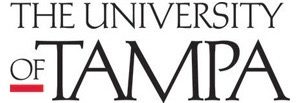University of Tampa Professor of Sociology Ryan Cragun has received a $70,000 grant to better understand the nuanced ways that members of the Church of Jesus Christ of Latter-day Saints (also known as Mormons) think about science.
The grant is funded by the Templeton Religion Trust of the Templeton Foundation and is part of a larger initiative to understand the connections between religion and science. The approach is multi-method, and currently interviews are being conducted to lay the foundation for a representative survey of the state of Utah.
Combined, the data will provide the most robust picture of how Mormons think about science to date. Cragun said that studying Mormons is particularly useful for understanding the intersections of religion and science for a variety of reasons.
“The religion was founded in the 19th century, as modern science was formalizing. As a result, the religion has formally embraced many scientific ideas, from biology to physics, but particularly modern medicine. The current president of the LDS Church, Russell M. Nelson, is a former heart surgeon,” Cragun said. “However, there are a number of scientific findings that challenge some of the core doctrines of the religion, such as the existence of Adam and Eve or the ancestry of Native Americans. Understanding how members of the LDS Church reconcile these scientific findings with their beliefs and behaviors will help scholars understand how the modern world works with, for and against religion.”
Cragun, who has taught at UT since 2007 and is co-director of UT’s Honors Program, in 2019 was named as part of an international team of eight that received a $1.9 million grant from the Canadian government’s Social Sciences and Humanities Research Council to study the social impact of the growing number people who identify as having no religion.
The University of Tampa is a private, comprehensive university located on 110 acres on the riverfront in downtown Tampa. Known for academic excellence, personal attention and real-world experience in its undergraduate and graduate programs, the University serves approximately 9,600 students from 50 states and 130 countries. The majority of full-time students live on campus, and about half of UT students are from Florida.

